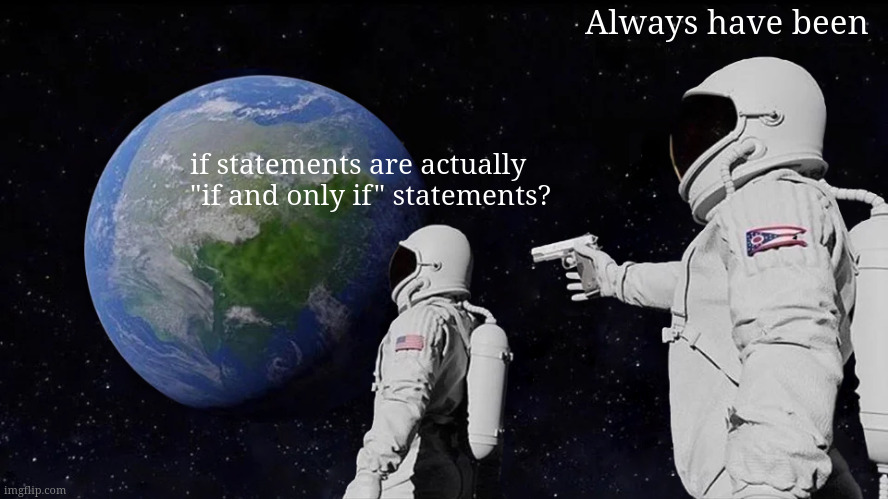this post was submitted on 05 Dec 2024
228 points (93.2% liked)
Science Memes
12417 readers
3131 users here now
Welcome to c/science_memes @ Mander.xyz!
A place for majestic STEMLORD peacocking, as well as memes about the realities of working in a lab.

Rules
- Don't throw mud. Behave like an intellectual and remember the human.
- Keep it rooted (on topic).
- No spam.
- Infographics welcome, get schooled.
This is a science community. We use the Dawkins definition of meme.
Research Committee
Other Mander Communities
Science and Research
Biology and Life Sciences
- [email protected]
- [email protected]
- [email protected]
- [email protected]
- [email protected]
- [email protected]
- [email protected]
- [email protected]
- [email protected]
- [email protected]
- [email protected]
- [email protected]
- [email protected]
- [email protected]
- [email protected]
- [email protected]
- [email protected]
- [email protected]
- [email protected]
- [email protected]
- [email protected]
- [email protected]
- [email protected]
- [email protected]
- !reptiles and [email protected]
Physical Sciences
- [email protected]
- [email protected]
- [email protected]
- [email protected]
- [email protected]
- [email protected]
- [email protected]
- [email protected]
- [email protected]
Humanities and Social Sciences
Practical and Applied Sciences
- !exercise-and [email protected]
- [email protected]
- !self [email protected]
- [email protected]
- [email protected]
- [email protected]
Memes
Miscellaneous
founded 2 years ago
MODERATORS
you are viewing a single comment's thread
view the rest of the comments
view the rest of the comments

In Javascript,
Math.random()produces a float value between 0 and 1, so I multiply by 1000 and round it to get a larger integer. Thevalue %2 == 0is a non-library way of performingisEven()on the random integer (value % 2is 0 if even, 1 if odd, and the==0makes it return a boolean). When used in theifstatement, it's essentially a coin flip.does javascript not allow you to interpret integers as booleans in a conditions directly? seems it'd be simpler to just do math.round(math.random()), which should still get you true (1) or false (0) in equal likelihood. or am i missing something?
It'll give you 1 ~= true or 0 ~= undefined, but I typically use Typescript which prefers actual booleans to boolean-ish
huh. interesting. i wonder what number it's actually storing for false then?